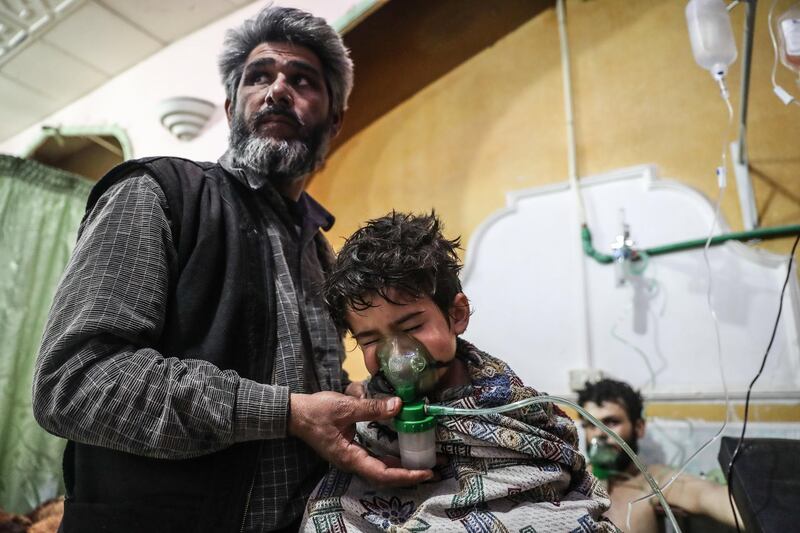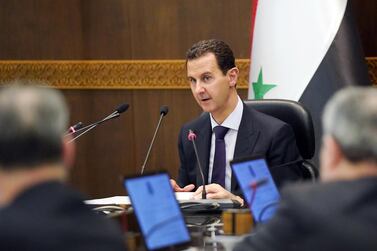The US on Tuesday threatened reprisals on the Syrian government after signs that it had carried out a chemical attack during its offensive in Idlib.
The State Department said it was assessing indications that the regime used chemical weapons on Sunday during its offensive on the most significant remaining holdout of extremist rebels.
"We are still gathering information on this incident but we repeat our warning that if the Assad regime uses chemical weapons, the United States and our allies will respond quickly and appropriately," State Department spokeswoman Morgan Ortagus said.
She also denounced Russia, the key ally of Damascus, for a "disinformation campaign" as it tried to blame other parties for chemical attacks.
"The Assad regime's culpability in horrific chemical weapons attacks is undeniable," she said.
Maj Gen Viktor Kupchishin, the head of the Russian military's Reconciliation Centre in Syria, said militants captured by Syrian troops spoke of a plan to stage fake chemical attacks in the towns of Saraqib and Jarjanaz and blame them on government forces. He claimed the militants had created a special "Chemical Wing" to produce and stockpile toxic agents.
The US continues "to see signs that the Assad regime may be renewing its use of chemical weapons, including an alleged chlorine attack in northwest Syria on the morning of May 19, 2019," a State Department statement said on Tuesday.
The State Department said the Russian allegations "are part of a continuing disinformation campaign by the Assad regime and Russia to create the false narrative that others are to blame for chemical weapons attacks that the Assad regime itself is conducting."
Russia and Turkey, the key ally of the rebels, in September reached an agreement that nominally protects Idlib amid fears for the safety of about 3 million people in the north-western area.
But Syria's former Al Qaeda affiliate, Hayat Tahrir Al Sham, has seized a large part of the province and adjoining areas, triggering a regime offensive that includes strikes by Syrian and Russian airplanes.
The Russian military said the former Al Qaida-linked militants in northwestern Syria launched an attack on Syrian government forces Tuesday, including with tanks.
Ms Ortagus said the offensive had destroyed hospitals, schools, homes and camps for the displaced.
"The regime's attacks against the communities of north-west Syria must end," she said.
"The United States reiterates its warning, first issued by President Trump in September 2018, that an attack against the Idlib de-escalation zone would be a reckless escalation that threatens to destabilise the region."
The warning came despite a trip to Russia last week by US Secretary of State Mike Pompeo, who was optimistic that the rival powers had found ways to work together on Syria.
About 180 civilians have been killed in the flare-up since April 30, the Syrian Observatory for Human Rights said from Britain.
The UN says that tens of thousands have fled their homes.
International inspectors say that Syrian President Bashar Al Assad's forces have carried out a series of chemical attacks in the course of the civil war, which has killed more than 370,000 people and displaced millions since 2011.
A sarin gas attack in April 2017 in the town of Khan Sheikhun killed 83 people, the UN said, leading Mr Trump to order a strike with 59 cruise missiles on a Syrian air base.
His action was a reversal from his predecessor Barack Obama, who had declared chemical weapons to be a red line but chose not to respond militarily.
Instead, the former president worked with Russia on a plan that aimed to remove the regime's chemical stockpile.
But Mr Trump is also sceptical of a commitment in Syria and last year ordered the withdrawal of all 2,000 US troops, although aides later said a small number would stay.








